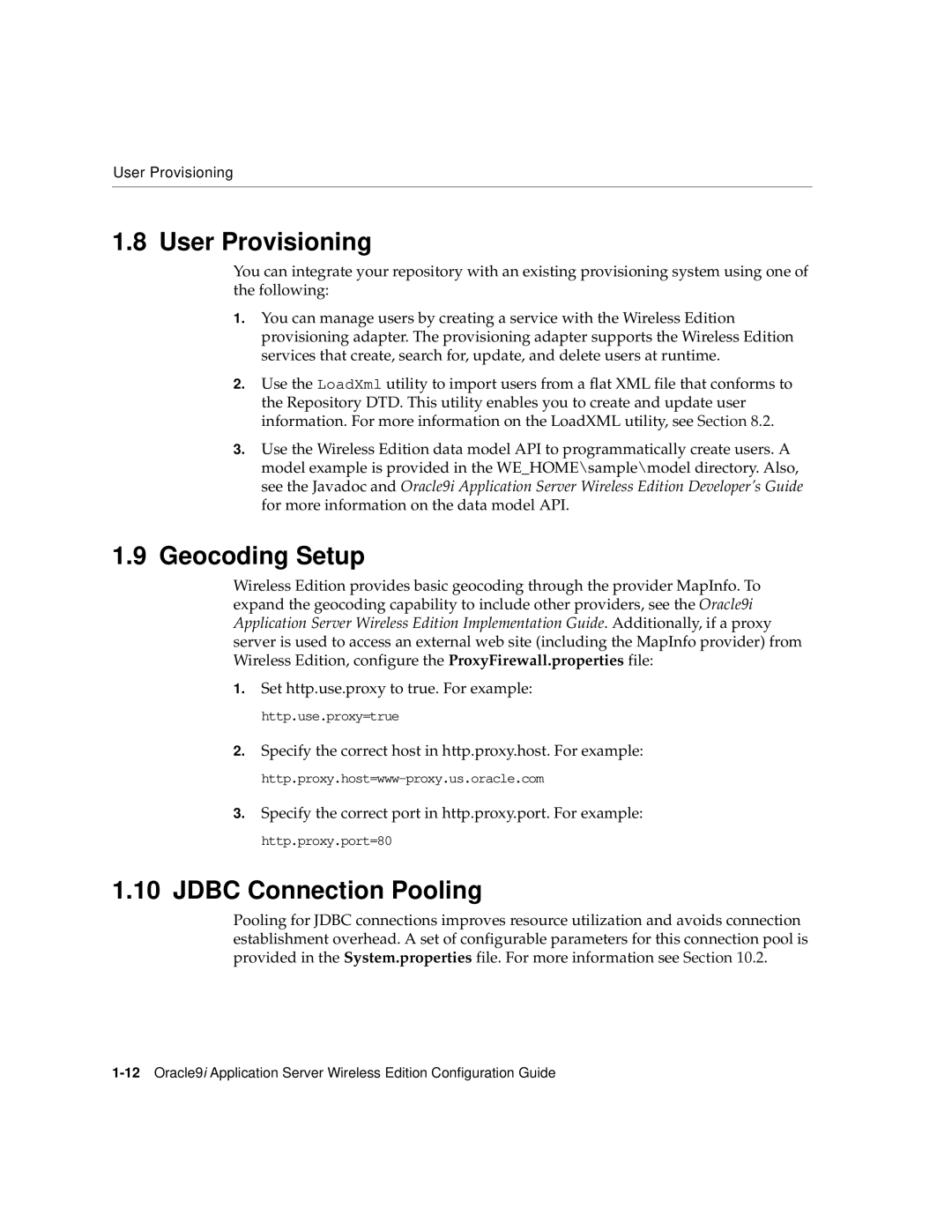User Provisioning
1.8 User Provisioning
You can integrate your repository with an existing provisioning system using one of the following:
1.You can manage users by creating a service with the Wireless Edition provisioning adapter. The provisioning adapter supports the Wireless Edition services that create, search for, update, and delete users at runtime.
2.Use the LoadXml utility to import users from a flat XML file that conforms to the Repository DTD. This utility enables you to create and update user information. For more information on the LoadXML utility, see Section 8.2.
3.Use the Wireless Edition data model API to programmatically create users. A model example is provided in the WE_HOME\sample\model directory. Also, see the Javadoc and Oracle9i Application Server Wireless Edition Developer’s Guide for more information on the data model API.
1.9Geocoding Setup
Wireless Edition provides basic geocoding through the provider MapInfo. To expand the geocoding capability to include other providers, see the Oracle9i Application Server Wireless Edition Implementation Guide. Additionally, if a proxy server is used to access an external web site (including the MapInfo provider) from Wireless Edition, configure the ProxyFirewall.properties file:
1.Set http.use.proxy to true. For example: http.use.proxy=true
2.Specify the correct host in http.proxy.host. For example:
3.Specify the correct port in http.proxy.port. For example: http.proxy.port=80
1.10JDBC Connection Pooling
Pooling for JDBC connections improves resource utilization and avoids connection establishment overhead. A set of configurable parameters for this connection pool is provided in the System.properties file. For more information see Section 10.2.
